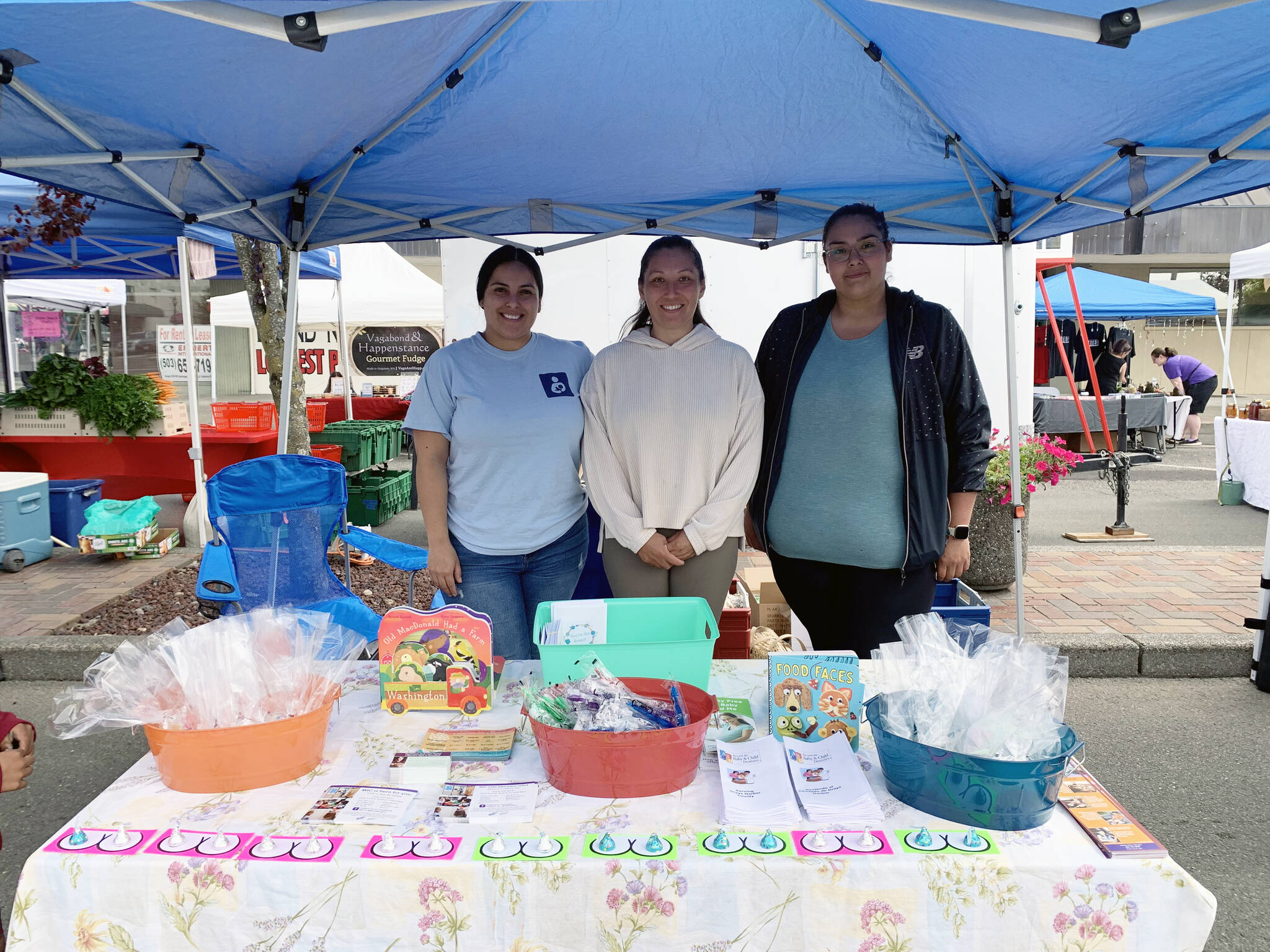New mothers, those expecting a child, and kids under five years old in Grays Harbor County are in good hands.
Those individuals, should they meet certain qualifications, have access to a county-run support program offering free breastfeeding help, nutritious foods and healthcare services — a program that, within the last few years, has bolstered staff both in number and expertise, providing care health officials say is critical to long-term well being of mothers and children.
The program, the county’s Special Supplemental Nutrition Program for Women, Infants and Children — or WIC for short, serves roughly 1,300 clients through the Grays Harbor County Public Health Department. Those clients are low-income pregnant, breastfeeding, or postpartum women, as well as infants and children up to age five who might be at nutritional risk.
A staple in health departments across the country, WIC has been funded by the United States Department of Agriculture since its pilot program in 1972. But the Grays Harbor WIC has excelled recently, raising breastfeeding rates among clients. In addition, several staff are now certified with the International Board Certified Lactation Consultants.
The WIC team is the main source for professional breastfeeding support in Grays Harbor County, said Kimberly McLaury, supervisor of the county’s WIC program.
“We’re kind of it for the Harbor,” McLaury said. “There’s nobody up at the hospital that is a lactation consultant. We don’t have other lactation consultants, really, in the area.”
Breastfeeding is an emphasis for the program, McLaury said, because breastfeeding rates in Grays Harbor County, as with many health metrics, are below the state average. Breastfeeding rates in Grays Harbor are around 37%, while the state average is 42%, according to the most recent data, McLaury said.
But that was before Carmela Lopez, another member of the WIC team, became certified by the international board this year, which, according to McLaury, who became a certified lactation consultant in 2021, will likely continue to raise breastfeeding rates in the county.
Babies that breastfeed tend to be healthier, McLaury said.
“It’s preferred just because breastmilk is tailored to the baby’s needs,” Lopez said. “It’s constantly changing.”
Mothers have specific physiological adaptations that change chemistry in breastmilk to make it more nutritional for babies. When a baby is sick, for example, its saliva sends messages to the mother’s immune system, filling breastmilk with antibodies needed for the baby’s health. If it’s warm outside, breastmilk will have lower fat content in order to quench a baby’s thirst; in cold weather, babies receive an added richness to their meal.
Education about the benefits — and the practice — of breastfeeding is also a large part of the WIC program. Clients can attend monthly breastfeeding classes, as well as appointments several times per month to check in, often working with Mina Fontenelle, a breastfeeding peer counselor with WIC.
Fontenelle said she personally struggled with breastfeeding after having a child of her own in 2020, leading her to join the WIC team. She specializes in prenatal care, ensuring future mothers have the information they need during each step of the pregnancy, and then after the baby is born.
Fontenelle said she tries to be as accessible as she can for her clients, especially as they get closer to their due date.
“I definitely text them more often and tell them, you know, ‘I’ll be here,’” Fontenelle said. “My hours are really flexible, so that’s something that’s different as well. People can reach me in the evenings and weekends.”
Timing is important for those receiving breastfeeding support, McLaury said. It’s best to sign up as early as possible in a pregnancy, because the first few days after a baby is born “can be really critical to breastfeeding success.”
Breastfeeding — or the lack of it — can be a form of food insecurity. But, according to McLaury, the WIC program provides other forms of nutritional supplements as well. New mothers and children are eligible to receive food packages, which can include items that tend to be more expensive, and, usually, more nutritious.
Proof of pregnancy is not required to join the program, but not all mothers are eligible for WIC’s benefits, either. Low-income and nutritionally at risk mothers and children are the target populations, said Lopez, who works to enroll applicants in the program.
Still, McClaury said, the program only serves about half of the eligible population in Grays Harbor County, according to Medicaid data.
“We would love for more people to sign up,” McClaury said.
WIC participants experience a slew of health benefits, both during their time in the program and later on in life, according to USDA research. WIC programs reduce infant mortality, risk of premature birth and low birth weight, improved cognitive development for children, and even lower healthcare costs in the 60 days after a child’s birth.
“WIC is an incredibly powerful public health program, with strong, proven benefits for participants, so we’ve got to do all we can to connect eligible mothers, infants, and children to the program and provide them with a positive, meaningful experience,” said Agriculture Secretary Tom Vilsack in an October press release.
WIC is not a “public charge” program, meaning it does affect those attempting to change their immigration status. To apply for the program or find out if you are eligible, call the Grays Harbor County Public Health Department at (360)-532-8631.
Contact reporter Clayton Franke at 406-552-3917 or clayton.franke@thedailyworld.com.


